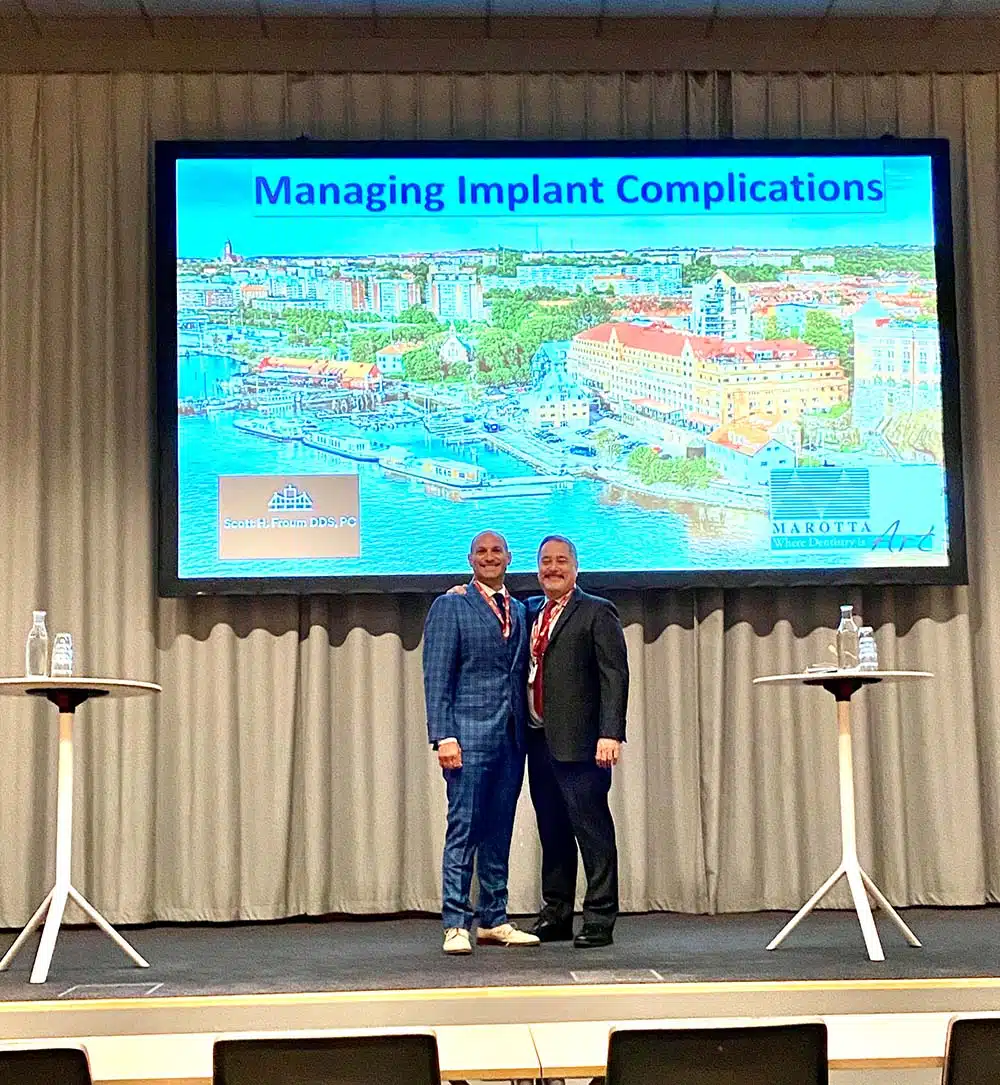
Dr Froum giving a lecture in Sweden on Dental Implant Complications
Implants have a high predictability and long-term success rate of over 90%, a number that has been well documented in the literature throughout the years. However, implant complications and failures can and do occur. Because more and more implants are being placed, more implant problems will arise due to the simple increase in volume of the number of implants being placed.
Dr. Scott H. Froum is an expert in the realm of implant complications. He has lectured extensively throughout the country on the subject of implant complications teaching other dentists how to treat implant problems. He has authored and written numerous papers and textbooks on implant problems and is considered to be one of the leading dentists in this field. Dr. Froum offers second opinions if you are told your implant has failed as well as offers treatment to correct numerous implant problems.
If your dentist or periodontist has informed you that your implant is failing or you are seeing poor results with your dental implants following your initial treatment, Dr. Froum can provide comprehensive care for dental implant repairs. Some complications may be relatively minor and easy to correct while others will be major and result in the loss of the implant or prosthesis (crown or bridge or denture). Because implant problems can progress quite quickly, knowledge of the possible corrective surgical and restorative treatments available is of the utmost importance.
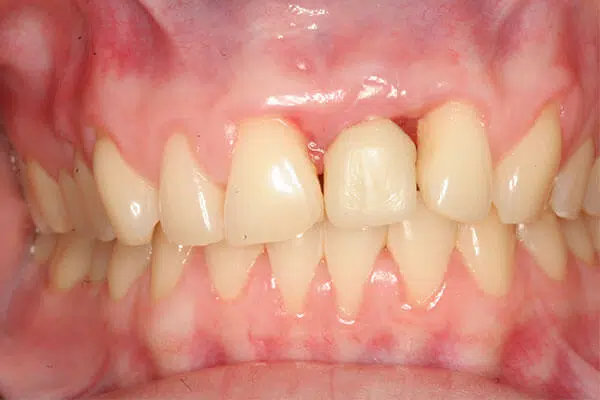
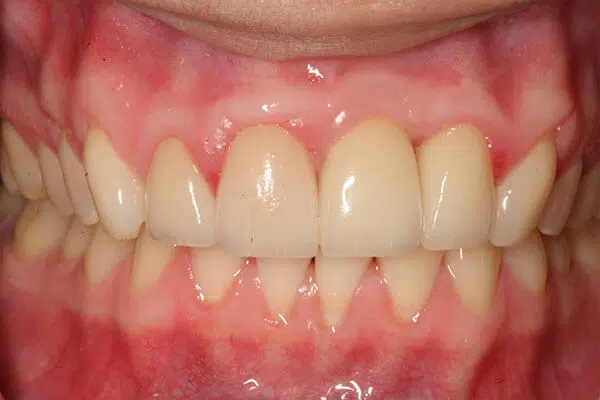
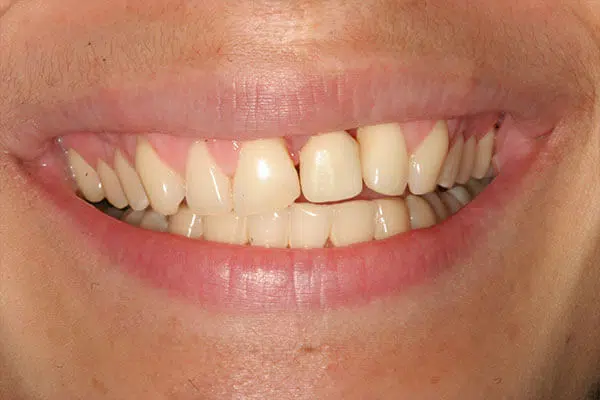
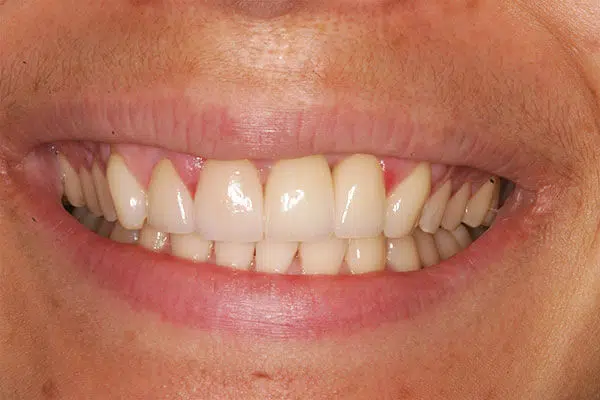
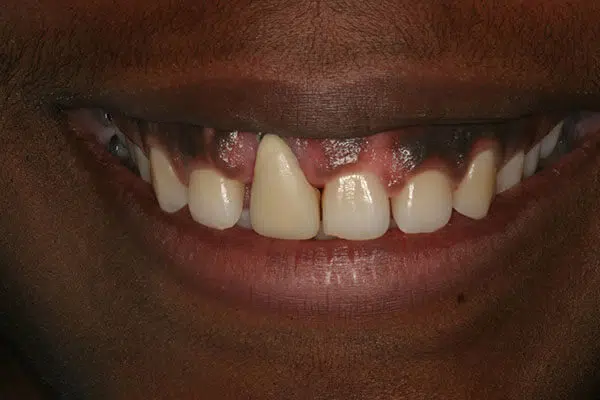
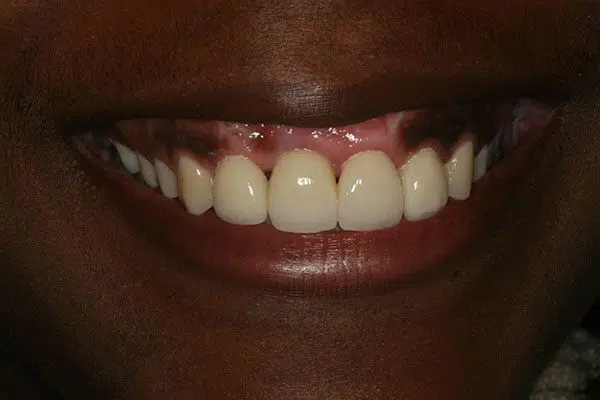
Possible Complications associated with Dental Implants:
Typically dental implants do not pose problems when appropriate follow-up care and checkups are received. However like any other mechanical body part, breakdown can occur. There are a handful of issues that could create both functional and aesthetic challenges for your smile. If you experience any of the following problems with your dental implants, our office can provide quick and effective care with personalized attention to improve your smile.
- Broken Crowns – A broken crown might simply be the result of regular wear and tear, but it could indicate a problem with the underlying implant, so it is important to seek periodontal care to be sure that the broken crown is addressed fully.
- Inflamed Gum Tissue – Inflammation in the gum tissue surrounding a dental implant could indicate that the implant is loose or infected. This problem can become much worse in a short period of time, so you will not want to ignore swelling or bleeding around dental implants.
- Exposed Implants – An improperly supported implant or untreated gum disease may expose the roots of a dental implant. This will not only cause an unsightly appearance, but it can pose a high risk for infection of the surrounding tooth roots or jaw bone.
Where to Turn for Dental Implant Issues
Because Dr. Froum has years of experience in periodontology and implantology, he is a leader in implant repairs and restorations of all types. Therefore, it is best to turn to our Manhattan practice for all implant complications if you have a problem with your dental implants. To schedule an appointment where you can explore the causes of your implant issues and find effective surgical or conservative treatment options, give us a call today at (212) 751-8530.
What are Common Dental Implant Complications?
What are the main complications with Dental implants?
The main complications with dental implants in NYC can be broken down into either problem with the dental implant itself or problems with the bone and gum holding the dental implant into the jaw. Problems with the dental implant itself include the implant screws loosening, breaking, the dental implant fixture breaking, the tooth crown breaking or getting loose, and the dental abutment getting loose or breaking. Problems with the bone and gum tissue that hold the dental implant into the jaw usually come from the invasion of bacteria that cause a dental implant to become infected. When an infection occurs, the gum and bone tissue holding the dental implant can be lost and the dental implant can get loose and fall out.
What problems can occur after dental implant surgery?
Problems that can occur after dental implant surgery in NYC include infection, swelling, bruising, and bleeding in the area of the dental implant. The dental implant can also get loose and fall out if the bone and dental implant do not combine with each other. Pain after dental implant surgery can also occur, although it is rare and you will more likely experience dull throbbing for a short period of time.
What should I know about dental implant complications and failures?
Dental implant complications and dental implant failures can occur quite quickly after the onset of an infection or broken dental implant part. Dental implants have a weaker attachment to the bone and gum when they are compared to natural teeth. Because of this, when a dental implant has a complication including infection, failure of the dental implant can occur much quicker than when a natural tooth has a problem. Therefore, it becomes very important to treat dental implant complications as soon as they are identified to prevent the problem from becoming more severe.
Do dental implants stop bone loss?
Dental implants are placed into the bone and then put into function by putting a dental implant tooth onto it can stop the jaw bone from atrophying after you lose your real tooth. Dental implants put the same stress on the jaw bone as real teeth and because of that, keep the jaw bone from dissolving. Dental implants, however, if they get infected after they are placed into the jaw, can lose bone around them just like natural teeth.
How do you know if a dental implant is rejected?
A dental implant can be in the process of getting rejected (failing) if the gum tissue around the dental implant is bleeding, pussing, and/or swollen. The bone holding the dental implant in the jaw can start to be lost as well when an implant is being rejected. Pain is not necessarily an indicator of dental implant rejection as you may or may not have it but a dental implant should not be painful in any circumstance except immediately after it is surgically placed. The ultimate form of dental implant rejection is if the implant becomes loose and either falls out or needs to be removed.
What should I know about dental implant complications and failures?
You should know that dental implant complications and failures are treatable when they are diagnosed early. There are many different treatments available to repair dental implants and regrow bone and gum tissue around dental implants that have been diseased. If you have a failing dental implant in NYC with dental implant complications get a consult from a periodontist to see if the dental implant can be saved.
When do dental implants usually fail?
The majority of dental implants fail within the first year of them being surgically placed into the jaw. Studies show that most dental implants will fail and come out in the first year after a tooth is placed on top of them. It is important that you get periodic checkups, x-rays, and cleanings after you receive dental implants to avoid dental implant complications.
Why do implants fail?
Dental implants usually fail when they have lost enough bone and gum tissue around them that they are no longer fixated on the jaw bone. They become loose and either fall out or need to be taken out. Dental implants can also fail when the parts of the implant become loose or break. Many times dental implant parts can be replaced but if the implant completely breaks then it has failed and needs to be removed.
Can a failed implant be replaced?
Failed dental implants can be replaced with a high degree of success if an experienced implant surgeon is treating you. Typically the area of the jaw bone that had the failed dental implant will need to have a bone graft and/or gum graft placed after the dental implant is removed. The area is then allowed to heal prior to a new dental implant being placed. In addition, the reason why the first dental implant failed should be figured out and addressed so the replacement dental implant does not have the same problem occur.
How do you fix a failed dental implant?
There are many different treatments available to fix failing dental implants in NYC. The first step is to check and see if the dental implant fixture itself is loose. If it is loose, it needs to be removed and replaced. If the dental implant has lost bone and/or gum, there are surgical techniques available to regenerate new bone and gum around a diseased dental implant. Dental implant screws can also become loose or break and need to be carefully removed so they can be replaced. Loose or broken dental implant abutments or crowns can also be fixed if they are carefully removed without breaking the dental implant fixture. When you have a dental implant complication, it is very important to see an experienced implant surgeon that knows how to handle different types of implant complications.
